France violence: Is it safe to visit Paris and other cities right now?
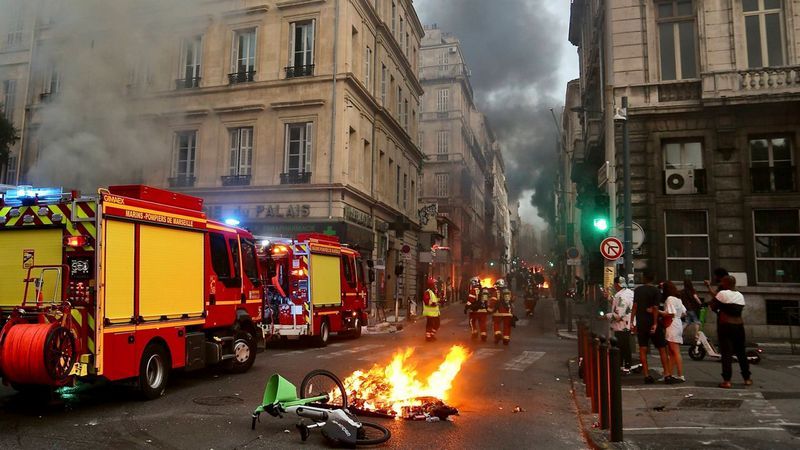
By Barry Neild and Xiaofei Xu, CNNU June 30, 2023
With violent and fiery protests gripping Paris and other cities across France in the wake of the fatal police shooting of a teenage boy, many of the millions planning a visit there this summer will be wondering if it’s safe to go ahead with their trip.
Chaos, destruction, and confrontations have led to curfews in some towns around the capital. Bus and tram services faced disruptions with a nationwide shutdown ordered for 9 p.m. on Friday to try to stem another night of violence.
As peak travel season gets underway – further boosted by the start of the two-week Tour de France cycle race – the world’s most-watched sporting event – here are some answers to the questions that visitors may be asking.
What’s happening in France right now?
Areas within some of France’s major cities have erupted in violence for several successive nights after a teenager named Nahel Merzouk, reportedly of Algerian descent, was fatally shot by police — an incident caught on video.
Confrontations between police and protesters began on the night of June 27 in the Parisian suburb of Nanterre, where Merzouk was shot, and have since spread to other parts of the capital and several other cities.
More than 800 people were arrested on the night of June 29, as outrage continued to intensify. Merzouk’s death appears to have become a flashpoint for anger about racial inequality in France and claims of police discrimination.
Buildings, vehicles, and debris have been set alight during the turmoil. France’s president, Emmanuel Macron, has been holding crisis talks amid concerns that the country could see a replay of the violence in 2005 that led to a state of emergency.
Which cities are affected?
Protests began in Nanterre, a suburb of northwestern Paris’ wider metropolitan area. Subsequently, there have been protests in other areas around the capital: Bezons, Gennevilliers, Garges-lès-Gonesse, Asnières-sur-Seine, Montreuil, Neuilly-sur-Marne, Clamart, and Meudon.
Further out, Trappes, Clergy, Guyancourt, and Vigneux-sur-Seine have also been affected.
These are all beyond the “Periphique” ring road that encircles the central Paris “arrondissements,” where most of the main tourist attractions and accommodations are located.
Elsewhere in France, Elite RAID police have also been deployed to key tourist cities Marseille and Bordeaux in the south, as well as the northern cities of Lille — a stop for the Eurostar train from London — and Roubaix.
What about curfews?
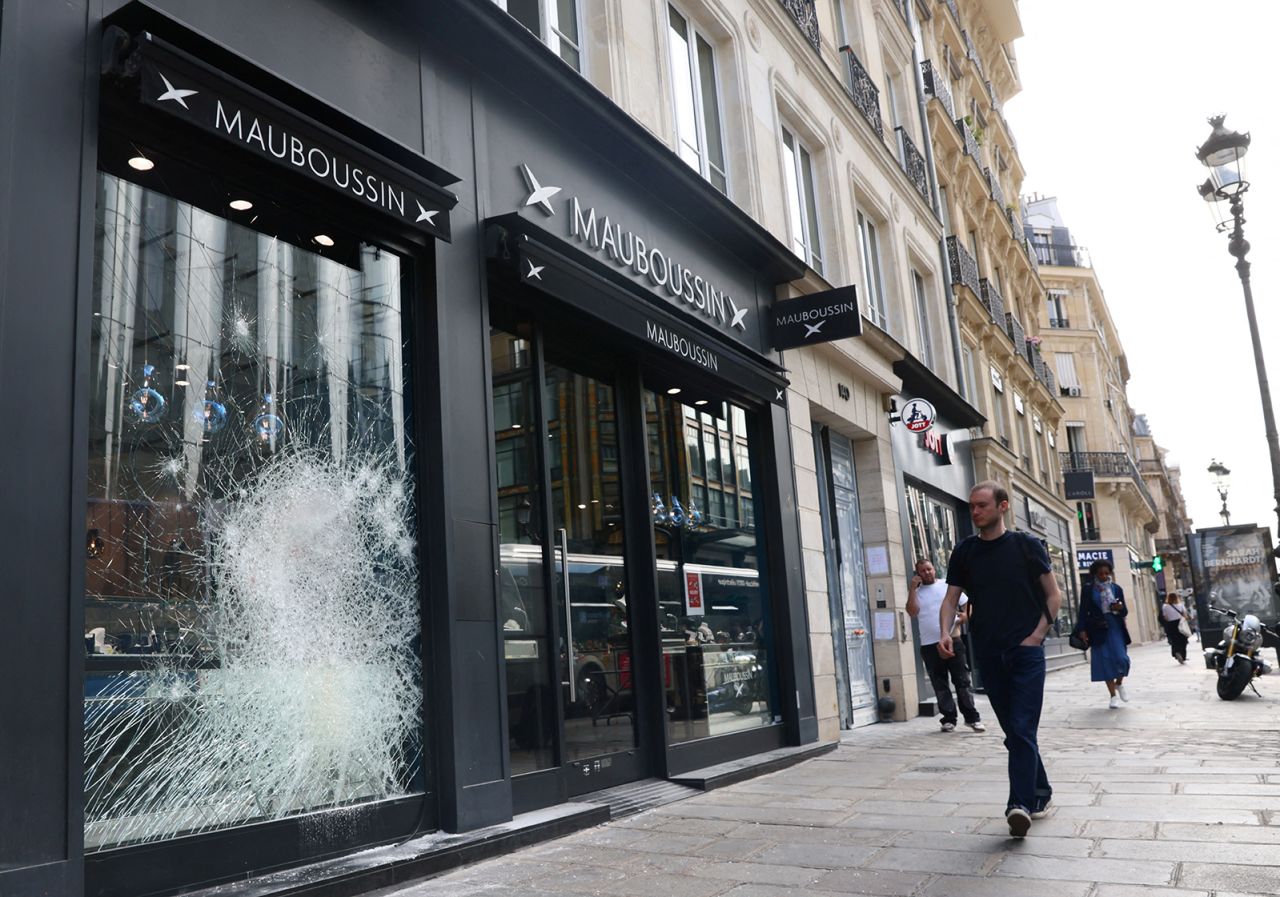
It's uncertain how long the protests will continue and what measures France will take to tackle it. Yves Herman/Reuters
Limited curfews have been imposed in two towns close to Paris at the center of some of the worst violence.
In Clamart, a curfew from 9 p.m. to 6 a.m. was put in place on Thursday and is set to continue nightly until July 3. Restrictions from 11 p.m. to 6 a.m. will be in place in Neuilly-sur-Marne.
How has transport been affected?
Transport networks have been severely affected. On Friday, France ordered the shutdown of all bus and tram services nationwide by 9 p.m.
The measure, announced by the Ministry of the Interior, came a day after some services in and around Paris were suspended as a direct result of the violence, some of which has targeted transport infrastructure.
In Clamart, one of the badly hit towns, a tram was set on fire. Several buses were torched in the Paris suburb of Aubervilliers.
On Friday, some bus services were disrupted in Paris but the Metro system was operating as normal.
The Nanterre-Préfecture train station was closed.
In Lille, buses and tramways were shut down after 8 p.m. on Thursday. On Friday daytime, services were more or less running normally, with some diversions in place.
In the southern city of Marseille, public transport was due to stop services at 7 p.m.
There has been no disruption to the Eurostar service connecting London, Lille, and Paris as a result of the protests. French intercity trains are also not affected.
It’s not clear if there will be any further shutdowns or disruptions if the protests continue in the coming days and those using them are advised to check websites for updates before traveling.
Is it safe to visit?
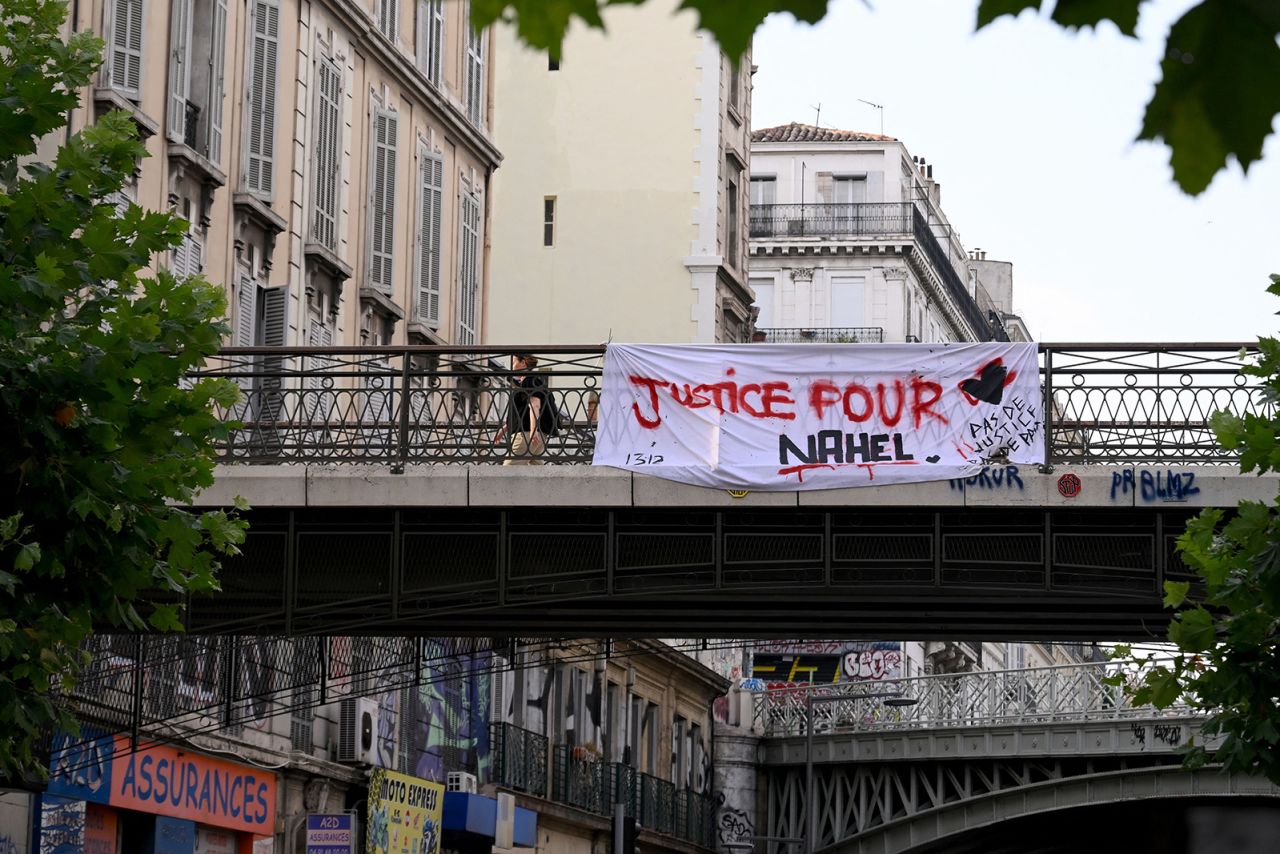
The violence and protests erupted after police shot dead a teenager in a Paris suburb. Nicolas Tucat/AFP/Getty Images
While the teenager’s death and subsequent outrage have sent shockwaves across France, much of life continues as normal. The central areas of Paris, home to the Louvre Art Museum and the Eiffel Tower have been almost totally unaffected. Likewise, the rural and coastal areas host many visitors.
That said, it’s not clear at present how long the protests will continue and what further measures the French government will adopt to try to tackle them.
Travel advisories from several countries warn of the protests and urge people to monitor the news and check in with tour operators; none have advised against traveling to France altogether.
The US State Department issued a security alert on June 29 covering France that highlighted the violent fallout of the shooting of the teenager and warned its citizens to steer clear of trouble spots.
“These demonstrations, along with spontaneous protests, are expected to continue and may turn violent,” it said.
“US citizens should avoid mass gatherings and areas of significant police activity as they can turn violent and result in clashes.
“Some cities are imposing curfews. As always, it is a good practice to notify friends or family of your whereabouts. Note that public transportation is being affected.”
It suggested monitoring media outlets France24, RFI, and The Local, for updates.
A US “level 2” advisory issued in October 2022 by the State Department remains in place urging travelers to “exercise increased caution in France due to terrorism and civil unrest.”
The UK Foreign and Commonwealth Office also issued warnings but stressed most visits to France were without incident.
“The protests may lead to disruptions to road travel or targeting of parked cars in areas where protests take place,” it said on its website.
“You should monitor the media, avoid protests, check the latest advice with operators when traveling, and follow the advice of the authorities.”
It went on to advise travelers to get insurance and noted: “Around 17 million British nationals visit France every year. Most visits are trouble-free.”
France riots: calmer night reported despite 700 arrests
Jon Henley in Paris@jonhenleySun 2 Jul 2023 14.18 BST
Forty-five thousand police and gendarmes were deployed across the country on the fifth night of rioting.
- ‘We are seen as less human: inside Marseille’s districts abandoned by
Police made at least 700 arrests during a fifth night of rioting in France, but despite an attack on the home of a local mayor authorities said the scale and intensity of the violence sparked by the fatal police shooting of a teenager appeared to be waning.
As security reinforcements were deployed on Saturday to flashpoint cities around the country, including Lyon, Marseille, and Grenoble, protesters – mostly minors – again torched cars, looted shops, damaged infrastructure, and clashed with police.
President Macron will meet senior ministers on Sunday evening to discuss the situation, the Élysée Palace said, after the interior ministry announced 719 arrests overnight, compared with 1,300 on Friday night.
More than 40 officers were injured, 577 vehicles torched, 74 buildings set on fire and 871 fires lit in streets and other public spaces, the ministry said. “Forty-five thousand police officers and thousands of firefighters were mobilized to enforce the order. Their actions … made for a quieter night,” it added.
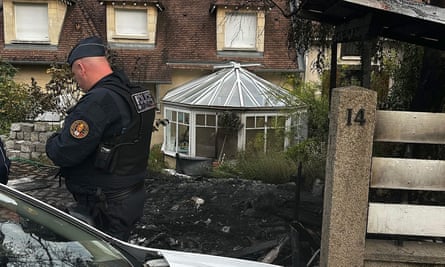
In the most serious incident, rioters rammed a burning car into the home of Vincent Jeanbrun, the mayor of L’Haÿ-les-Roses, nine miles (15km) south of Paris, at about 1.30 am. Jeanbrun was working late at the town hall, but his wife and one of his two children were injured as they fled.
“Last night was a new milestone in horror and disgrace,” the mayor, from the conservative Les Républicains party, tweeted, condemning “an act of unspeakable cowardice”. The local prosecutor said on Sunday the attack was being investigated for attempted murder.
“First indications suggest the car was driven into the building in order to set fire to it,” Stéphane Hardouin said, adding that a Coca-Cola bottle filled with flammable liquid had also been found at the scene. He confirmed the injuries to the mayor’s family.
Visiting the town on Sunday with Gérald Darmanin, the interior minister, Elisabeth Borne, the prime minister, denounced “an intolerable attack” and pledged those responsibly would “not get away with it”.
Rioters also entered the garden of another mayor, in La Riche, outside the city of Tours, and tried to set light to his car, prosecutors said. Politicians of all parties expressed outrage at the attacks, with demonstrations of support planned outside town halls across France on Monday.
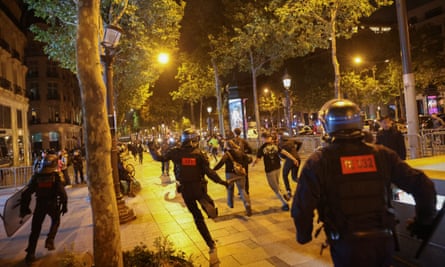
Elsewhere, a massive police presence seems to have kept the worst violence in check, with no other major clashes or incidents recorded. “This was a first night of relative calm after four of fever,” said Le Monde, though it warned the lull could be temporary.
The Paris police chief said it was too early to say the unrest had been quashed. “There was evidently less damage, but we will remain mobilized in the coming days. We are very focused; nobody is claiming victory,” Laurent Nunez said.
The biggest flashpoint was in Marseille, where police fired teargas and fought street battles with youths, many in their early teens before finally dispersing them from around the city’s central Canebière avenue late in the night.
There were also sporadic skirmishes and multiple arrests in Nice on the Riviera and Strasbourg in eastern France but in most cities – including Lyon, where police deployed armored personnel carriers and a helicopter – fewer incidents were reported and fewer arrests made than on Friday, authorities said.
More than 7,000 officers were deployed in the greater Paris region, including along the Champs Élysées in the center of the capital, after calls on social media to gather there. The avenue, usually packed with tourists, was lined with security forces carrying out spot checks, and shop facades were boarded up.
A number of towns have banned demonstrations and declared overnight curfews, with authorities also ordering bus and tram services nationwide to halt at 9 pm at the latest and outlawing the sale of large fireworks and inflammable liquids.
President Macron has urged parents to take responsibility for their children. The justice ministry has said 30% of those arrested have been minors, while Darmanin said the average age of those arrested was 17.

The funeral of 17-year-old Nahel M, who died on Tuesday after he was shot by a police officer during a traffic stop, was held peacefully on Saturday in the Paris suburb of Nanterre, where he lived.
Nahel, of Algerian and Moroccan parents, was known to police for previously failing to comply with traffic stop orders and was driving illegally, prosecutors have said. A 38-year-old police officer has been charged with voluntary homicide over the killing and is in custody.
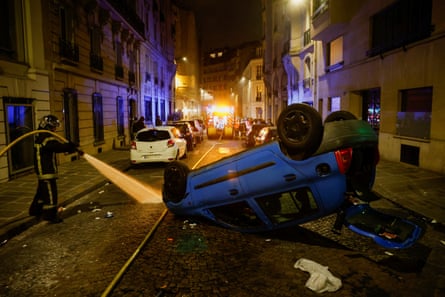
The protests mark a fresh crisis for Macron, who on Saturday was forced to postpone a state visit to Germany, following months of often violent protests that erupted in January over his decision to push through an unpopular pension reform.
The postponement marks the second time this year the embattled French president has had to cancel a high-level engagement because of domestic trouble. King Charles’s planned state visit was canceled in March.
The unrest has also raised concerns abroad, with France hosting the Rugby World Cup this autumn and the Paris Olympic Games next summer. The UK, China, the US, and other countries have warned tourists to stay away from areas affected by rioting.

The shooting of the teenager, caught on video, has reignited longstanding complaints by poor and racially mixed urban communities of police violence and racism. Macron has denied there is systemic racism in French law enforcement agencies.
There is also broader anger in the country’s poorest suburbs, where inequalities and crime are rife and French leaders have failed for decades to tackle what some politicians have called a “geographical, social, and ethnic apartheid”.
With Agence France-Presse and Reuters

